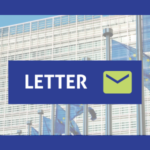During the Extraordinary Summit in Versailles, on 10 and 11 March, European Union heads of state meet to discuss consequences and response to the war in Ukraine, and potentially the need for increased military spending of European Union Member States. CAN Europe believes this may be a game changer in the debate on the reform of the EU economic governance.
The Russian military aggression on Ukraine is already triggering unexpected additional spending for European Union Member States. Germany and Denmark decided to substantially increase their military spending, while refugees’ protection will also have an impact on public budgets, with already 2 million refugees fleeing Ukraine– many of them unaccompanied minors. Our governments may also have to spend more in order to protect people in Europe against energy and food price hikes partly resulting from our interdependency on Russia and Ukraine in an economy dominated by globalized supply chains. All this is increasing the urgency to accelerate investments in renewables and energy savings in order to strengthen the EU’s energy autonomy and protect people living in the EU against price hikes.
The new geo-political situation is clearly reshuffling the cards regarding the reform of the EU fiscal rules and economic governance: more public spending will be needed and capping public debt at 60% of GDP and national budgets’ deficit (the negative difference between government revenue and spending) at 3% of GDP will make that impossible.
In that context, nine Member States – Italy, Estonia, Greece, Hungary, Latvia, Lithuania, Poland, Romania and Slovenia – expressed support for military spending to escape the EU deficit rules. Another option suggested by France, is to set up a new EU resilience fund, along the lines of the EU Recovery and Resilience Facility adopted in response to the pandemic. The Recovery and Resilience Facility was quite unique as it was the very first time that the EU borrowed on behalf of member states, generating an EU debt.
Increasing public deficit and debt beyond what current EU rules allow to fund military spending raises questions: Can such militarization contribute to building a peaceful and sustainable future in Europe? At CAN Europe, we are climate policy experts, not military analysts. The war in Ukraine is heavily interconnected with climate and energy policies. Therefore, we believe that the most effective EU financial weapon against Russia is to boost energy savings and renewables. This will not only make the EU less dependent on Russia’s fossil fuel imports, but it will also significantly reduce EU financial flows to Russia, which help fund the war. Moreover, it will put a stop to importing fossil fuels from other authoritarian regimes, and reduce volatility of energy prices for EU consumers and companies. All together this will be a significant step towards curbing greenhouse gas emissions – which needs to remain a top priority, as was recently stressed by the UN’s Intergovernmental Panel on Climate Change.
Boosting energy savings and renewables requires substantial mobilisation of both national and EU funds. For many years, EU governments have prioritised debt and deficit reductions over important environmental and social outcomes – including important climate and energy investments. As a result we are not only behind in meeting the goals of a green transition, but we are left vulnerable and dependent on despotic oligarchs. Hence the need to reform EU fiscal rules, and encourage member states to ramp up public spending for the green and just transition. These green investments should receive preferential treatment under reformed EU fiscal rules, with appropriate safeguards to ensure effective impact.
As such, reform of the EU fiscal rules is needed more than ever, but must be accompanied by reforms of taxation and subsidies. Indeed, taxes will help curb and dis-incentivize some of the most ecologically damaging activities. Tax reform is also an important way of reducing inequality and making sure the richest (those with ‘broadest shoulders’) contribute their fair share towards the transition. It is time for the EU and Member States to seriously address, among others: the windfall profits made by energy companies over the last few months; the too low digital levy on multinational companies agreed in the OECD; the incapacity of all Member States to agree on a meaningful financial transaction tax; the lack of adequate environmental taxes and wealth taxes in most member states; and the colossal amount of environmentally harmful subsidies.
The war in Ukraine witnesses the intersecting trends of militarisation, shrinking democratic space in many regions of the world, and increased competition for finite natural resources. Manufacturing weapons will solve none of these longer-term challenges. The EU economic governance review is the opportunity to rethink our economic model so that it does not depend anymore on overconsumption, fossil fuels and relentless exploitation of natural resources. A reformed EU economic governance framework will also have to drive an unprecedented acceleration of investments in energy savings, energy efficiency, and renewable energy. All in all, a reform of EU fiscal rules to catalyze spending in a green and just transition is essential to deliver both energy and climate security.

